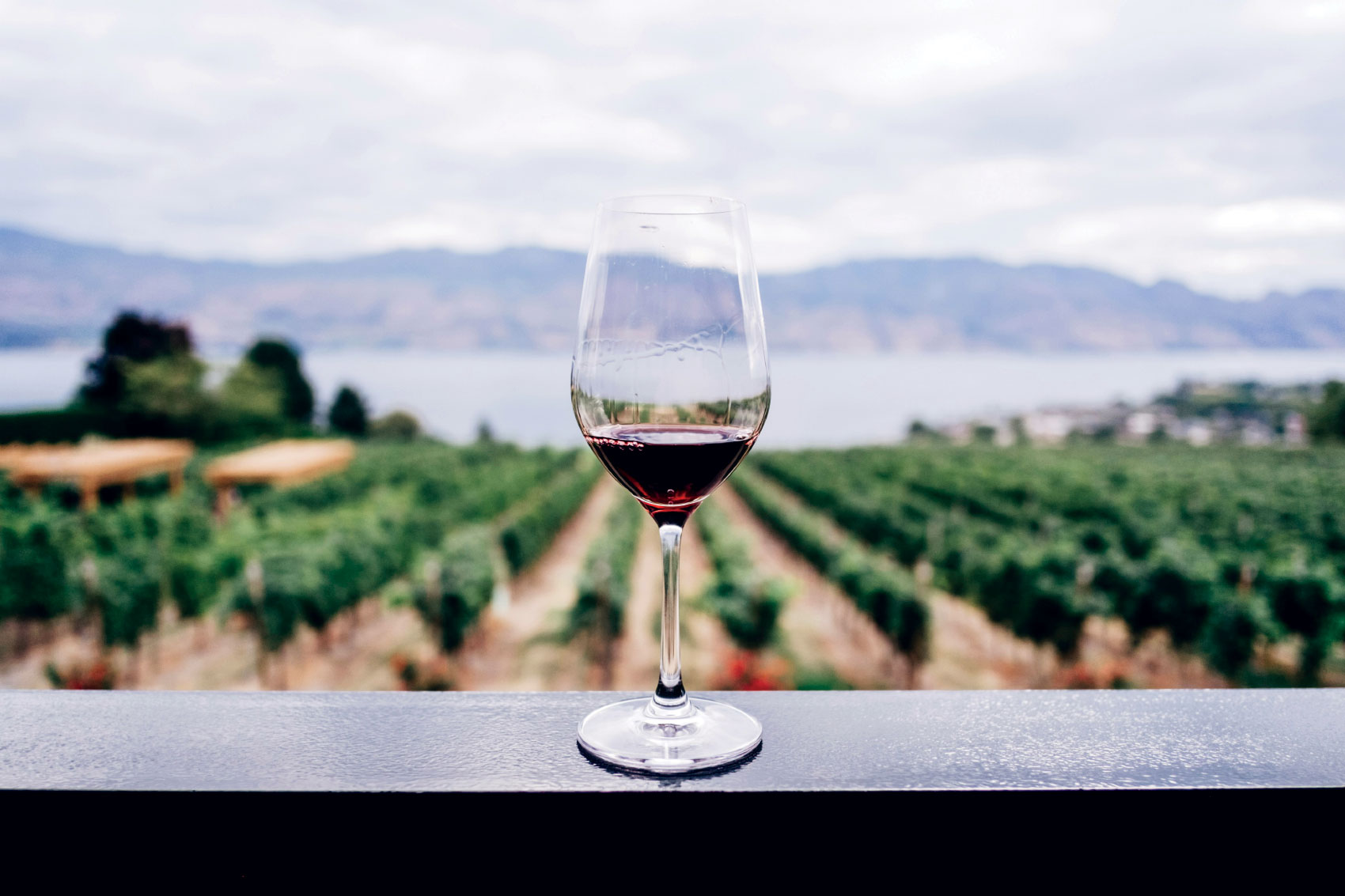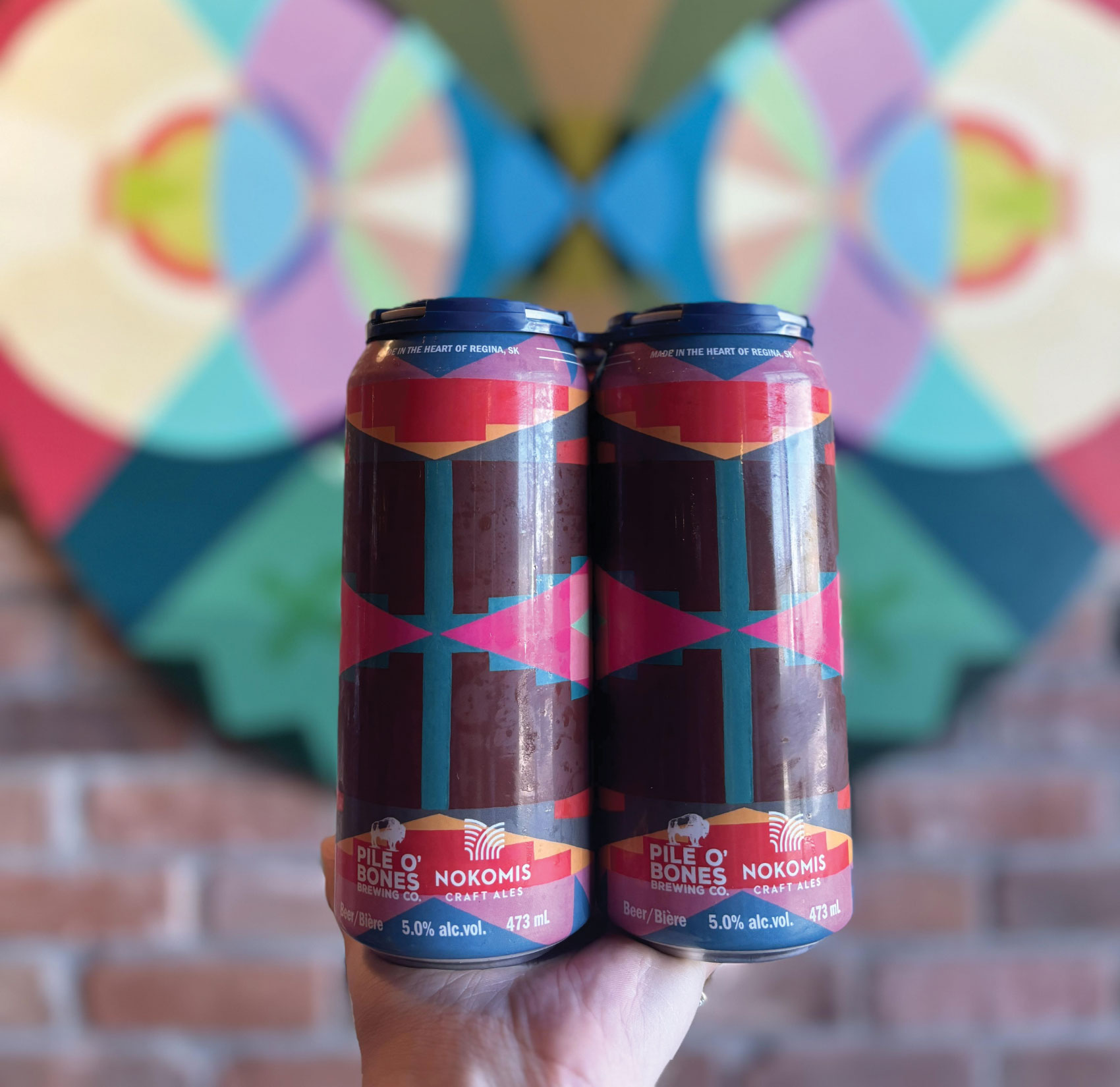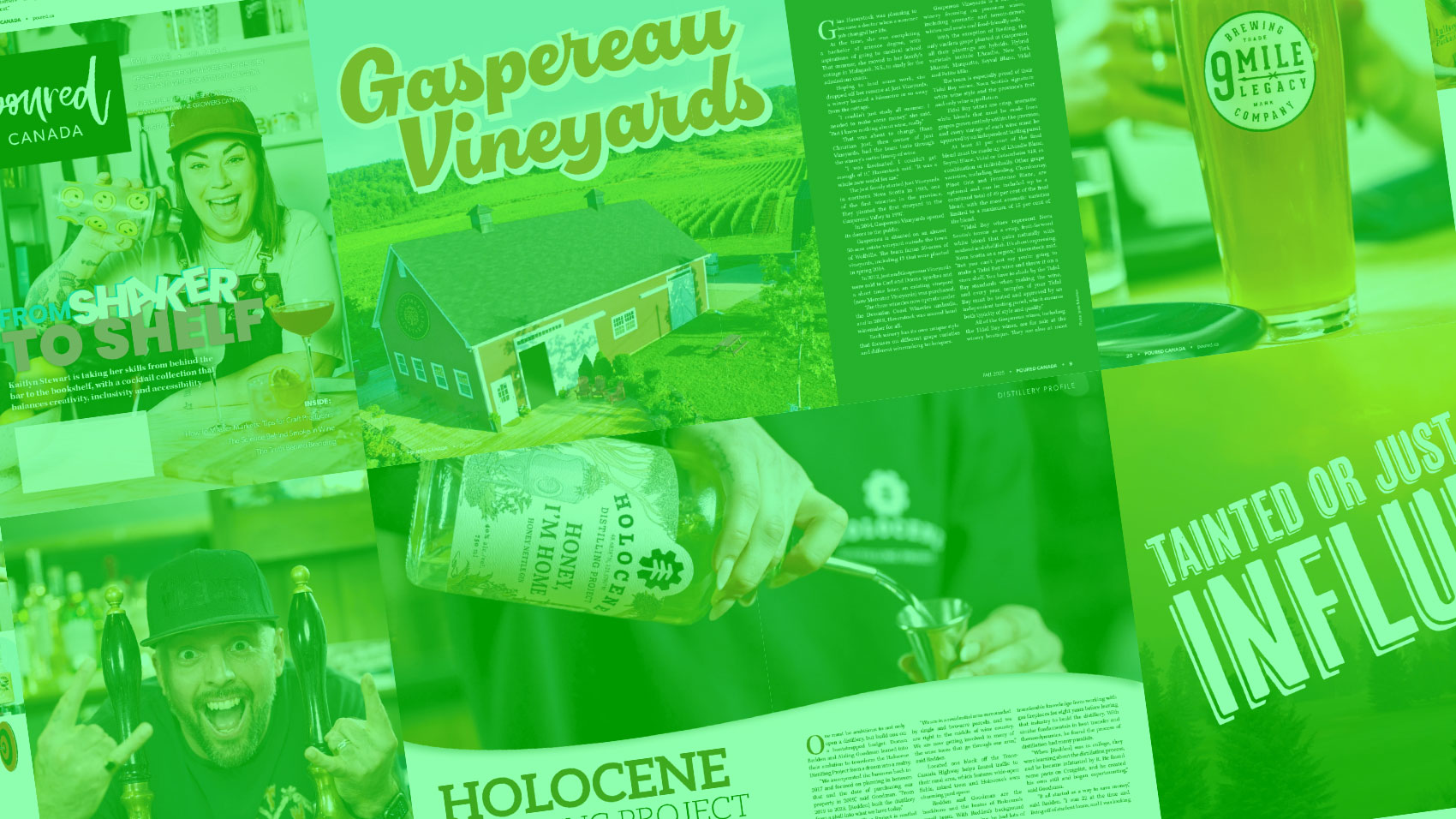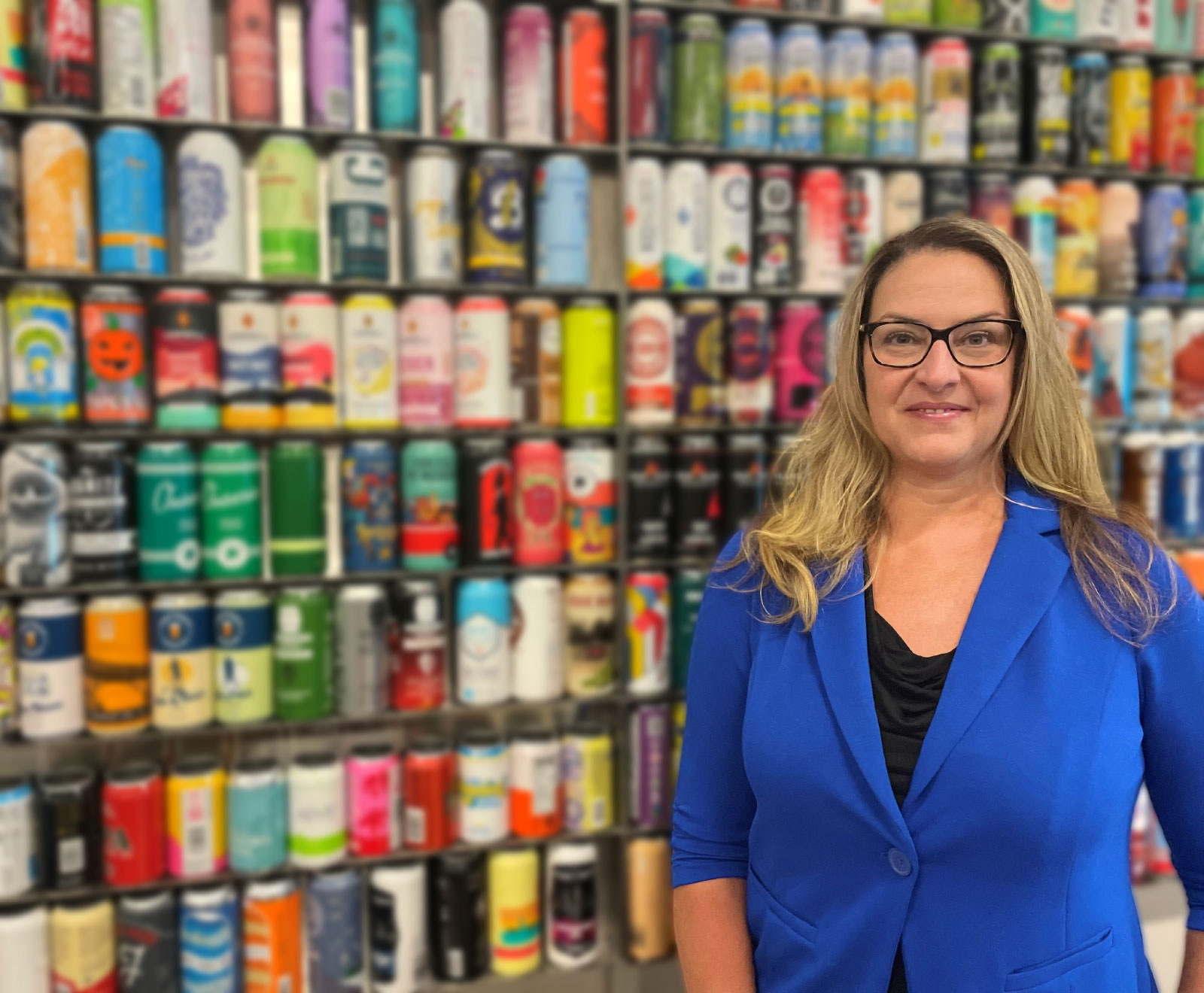In the landscapes of Canadian vineyards, climate change looms, casting its shadow over the art of winemaking. The traditional cool climates that once nurtured vineyards are now grappling with warmer temperatures, prolonged seasons and unpredictable weather patterns.
Wineries have been forced to re-evaluate traditional practices and explore innovative solutions to adapt to this new reality. From experimenting with grape varieties that are more resilient to heat stress, to implementing advanced irrigation techniques, the quest for sustainability and resiliency in the face of climate adversity has become paramount. In this era of environmental uncertainty, the Canadian wine industry may find itself at a crossroads, navigating the delicate dance between tradition and adaptation to preserve the essence of world-renowned wines.
Michelle Bouffard, a certified sommelier, highlights the global decline in wine production due to these challenges. She says consumers play an important role in promoting a sustainable future for the industry.
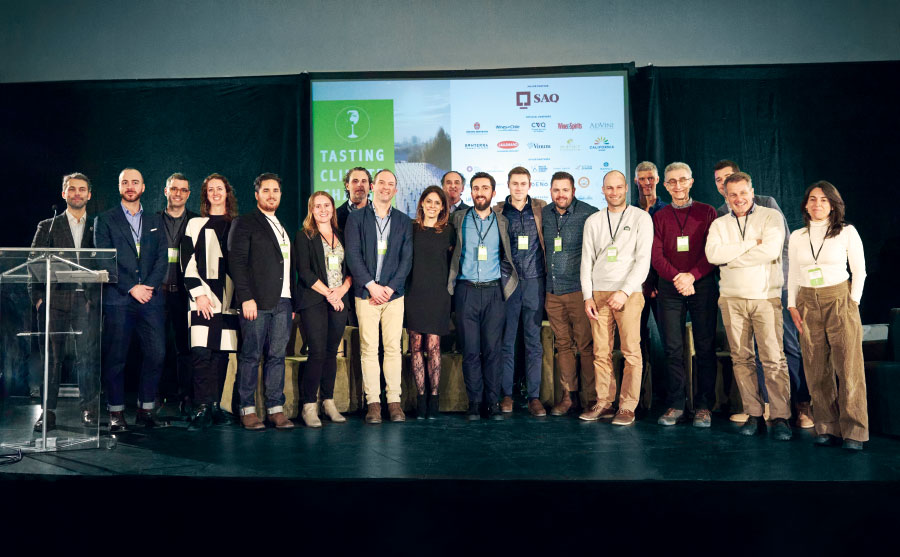
“The choices we make in promoting, purchasing and consuming wine can contribute to a more sustainable and resilient future for the industry,” she said.
In response to the pressing climate change issues, in 2017, Bouffard founded Tasting Climate Change, an international symposium aimed at exploring the challenges and solutions within the wine industry. However, she faced initial resistance from winegrowers who were reluctant to associate themselves with a conference addressing the negative impacts of climate change. Despite this skepticism, the conference has evolved into a vital platform, bringing together experts and stakeholders to discuss urgent changes needed in the industry.
The Tasting Climate Change conference in Montreal at the beginning of 2024 gathered global participants to discuss pressing issues facing the industry. With the Intergovernmental Panel on Climate Change reporting unprecedented climate changes, the wine industry faces vulnerabilities such as extreme weather events, changing pest pressures and shifts in the growth cycle of vines.
“As custodians of the land, we have a responsibility to not only produce excellent wines, but also to contribute positively to the environment. Our project with clean fertilizers is a step towards carbon neutrality.”
Véronique Lémieux, Vignoble de la Beauge
Simon Naud and Véronique Lemieux from Vignoble de la Beauge provided firsthand insights into the impact of climate change on their vineyard. Naud stressed the importance of consumer education on the connection between ecological efforts and the final product, encouraging visits to the vineyard for firsthand experiences.
“The key lies in educating consumers and sommeliers about the impact of climate change on wine production,” said Naud.
In addressing climate change, the discussion shifted to grape varieties. The promising Itasca, with its short ripening period and minimal treatment requirements, is a hopeful option. Lemieux underscored the importance of working with adapted or hybrid grape varieties to navigate unpredictable temperatures and weather changes.
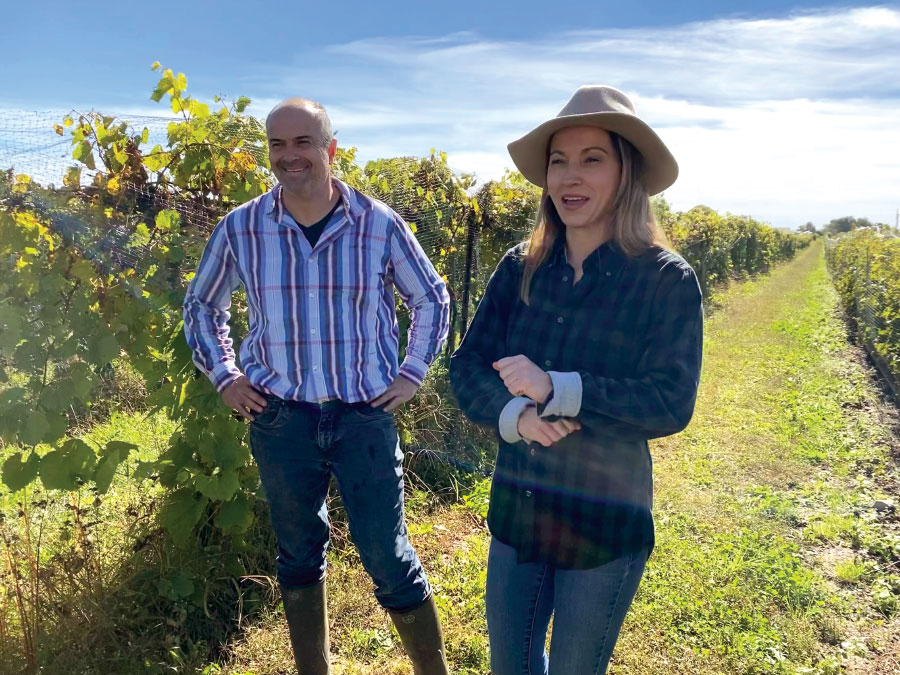
“Our seasons are a bit longer,” she said. “Deprivation in spring occurs earlier, and longer falls allow better ripening of grapes.”
In an innovative project at their vineyard, Naud detailed a unique approach to addressing climate change. The project involves using clean and traceable fertilizers to promote better organic matter and soil health without heavy metals.”Agriculture plays a crucial role in capturing and sequestering carbon in the soil,” he said.
The evolving narrative of Canadian winemaking reflects resilience, adaptation and commitment. The symposium initiated by Bouffard serves as a rallying point for an industry facing unprecedented challenges. As winemakers and consumers navigate the changing landscape, the choices made in vineyards, cellars and homes will shape a more sustainable and resilient wine industry.
“The choices we make in promoting, purchasing and consuming wine can contribute to a more sustainable and resilient future for the industry.”
Michelle Bouffard, Tasting Climate Change
“Innovation is the cornerstone of our response to climate change. We can no longer rely on the status quo; we must embrace new ideas and practices to ensure the sustainability of our vineyards and the quality of our wines,” said Bouffard.
The symposium not only highlighted challenges, but also sparked a dialogue on tangible solutions. “The challenge is not only in adapting to the changes, but also in conveying these transformations to our consumers,” she said. “Their understanding and support are crucial in ensuring the sustainability of the industry.”
As the industry explores adaptive grape varieties and embraces innovations like the promising Itasca, there is a sense of hope. The resilience demonstrated by winemakers in the face of challenges reflects a collective commitment to preserving the art and tradition of winemaking.

“Our choice of grape varieties is a strategic decision in our battle against climate change,” said Naud. “Itasca, with its characteristics suited to the evolving climate, symbolizes our determination to navigate uncharted territories.”
The innovative project at Vignoble de la Beauge, involving clean and traceable fertilizers, adds another dimension to the industry’s response. Naud’s emphasis on agriculture’s role in capturing and sequestering carbon aligns with a broader global understanding of sustainable practices.
“As custodians of the land, we have a responsibility to not only produce excellent wines, but also to contribute positively to the environment. Our project with clean fertilizers is a step towards carbon neutrality,” said Lemieux.
The journey through the Canadian winemaking landscape amid climate change is a multi-faceted saga involving technicalities of grape cultivation, the artistry of winemaking and the overarching responsibility towards the environment.

